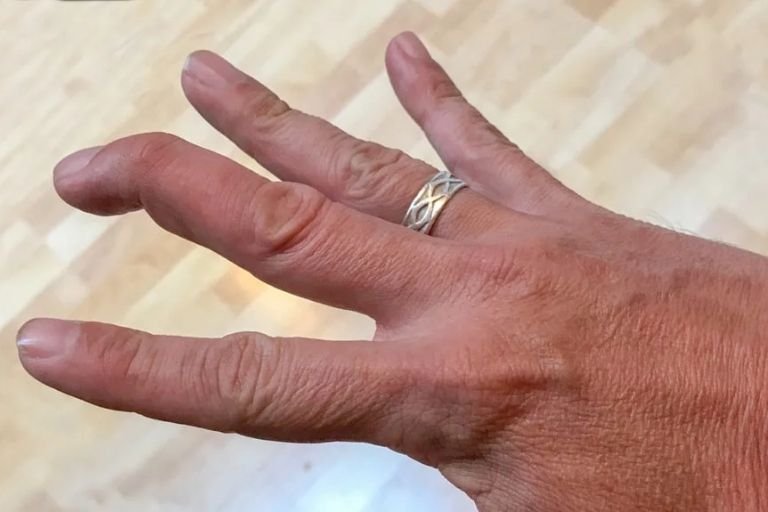- Fitwell Physiotherapy
Vertigo

Vertigo is a disorienting condition characterized by a sensation of spinning or dizziness, often accompanied by nausea, vomiting, and balance problems. It can be debilitating, affecting one’s ability to perform daily activities and compromising overall quality of life. Understanding its symptoms, causes, and treatments is crucial for managing this condition effectively.
Please submit your details below.
Symptoms:
- Sensation of Spinning: The primary symptom of vertigo is feeling like you or your surroundings are spinning or moving when there is no actual movement.
- Nausea and Vomiting: Vertigo can often cause nausea, sometimes leading to vomiting.
- Loss of Balance: Individuals with vertigo may experience unsteadiness or difficulty maintaining balance, increasing the risk of falls.
- Sweating: Profuse sweating may accompany vertigo episodes.
- Tinnitus: Some people experience ringing or other noises in their ears during vertigo episodes.
Causes:
- Inner Ear Issues: Most cases of vertigo are caused by problems in the inner ear, such as benign paroxysmal positional vertigo (BPPV), vestibular neuritis, or Meniere’s disease.
- Head Injury: Trauma to the head can damage the inner ear or the vestibular nerve, leading to vertigo.
- Infections: Certain infections, such as vestibular neuritis or labyrinthitis, can cause inflammation in the inner ear, resulting in vertigo.
- Medications: Some medications, especially those that affect the inner ear or vestibular system, can trigger vertigo as a side effect.
- Migraines: Vertigo can be a symptom of migraines, particularly in cases of vestibular migraine.
When to See a Physiotherapist:
If you experience recurrent or severe episodes of vertigo, it’s essential to consult a physiotherapist or a healthcare professional. They can assess your symptoms, conduct diagnostic tests, and develop a personalized treatment plan. Additionally, seek medical attention if you experience any of the following:
- Sudden onset of vertigo without apparent cause.
- Persistent vertigo that interferes with daily activities.
- Accompanying symptoms like severe headache, slurred speech, or weakness in limbs.
Risks:
Vertigo can significantly impact your safety and quality of life. The risks associated with untreated vertigo include:
- Falls and Injuries: Balance problems resulting from vertigo increase the risk of falls, leading to injuries such as fractures or head trauma.
- Impact on Mental Health: Chronic vertigo can lead to anxiety, depression, and social isolation due to the fear of experiencing dizzy spells in public.
How to Prevent:
While some causes of vertigo are unavoidable, certain measures can help reduce its occurrence:
- Stay Hydrated: Dehydration can exacerbate vertigo symptoms. Ensure you drink an adequate amount of water daily.
- Avoid Triggers: If certain foods or activities trigger vertigo episodes, try to avoid them.
- Manage Stress: Stress can exacerbate vertigo symptoms. Practice relaxation techniques such as deep breathing, meditation, or yoga to reduce stress levels.
- Maintain Good Posture: Poor posture can affect the inner ear’s balance mechanisms. Practice good posture habits to prevent strain on the neck and spine.
Treatments:
- Canalith Repositioning Maneuvers: Physiotherapists often use specific maneuvers, such as the Epley maneuver for BPPV, to reposition displaced inner ear crystals and alleviate vertigo symptoms.
- Vestibular Rehabilitation: This specialized form of physical therapy focuses on exercises and maneuvers to improve balance and reduce vertigo symptoms.
- Medications: In some cases, medications such as anti-vertigo drugs, antihistamines, or anti-anxiety medications may be prescribed to manage symptoms.
- Surgery: In rare cases where vertigo is caused by structural abnormalities in the inner ear, surgery may be recommended to correct the issue.
Vertigo can be distressing, but with proper diagnosis and treatment, many individuals can effectively manage their symptoms and lead fulfilling lives. If you’re experiencing vertigo or related symptoms, don’t hesitate to seek medical attention for proper evaluation and treatment.
Frequently Asked Questions
Related Conditions
How Fitwell Physiotherapy Can Help?
Dr. Richa’s Fitwell physiotherapy has an extensive team of physiotherapists all within their own specialist areas of physiotherapy. Whatever your condition, we guarantee that we will have the best physiotherapist for you. We assess, diagnose, plan, cure and care for you.
Fitwell Physiotherapy Clinic, Pune provides you best physiotherapy treatment in Kharadi, pune. We also serve Chandan Nagar, Vadgaon Sheri, Keshav Nagar, Wagholi & nearby Areas in Pune. We are experts in treating Neck Pain, Hand Pain, Back Pain, Lower Back Pain, Knee Pain, Stiff Neck, Sciatica, Arthritis, Stroke Paralysis & Post Surgical Rehab.
We provide Specialized physiotherapy treatments in Sports Injuries, Pre and post Surgery, Neurologic, Pediatric, Chronic Pain/Fatigue, Rheumatology, Women’s Health, Men’s Health, Ergonomics, Vestibular, Amputees & all sort of Pain treatment and lifestyle conditions.

































































































